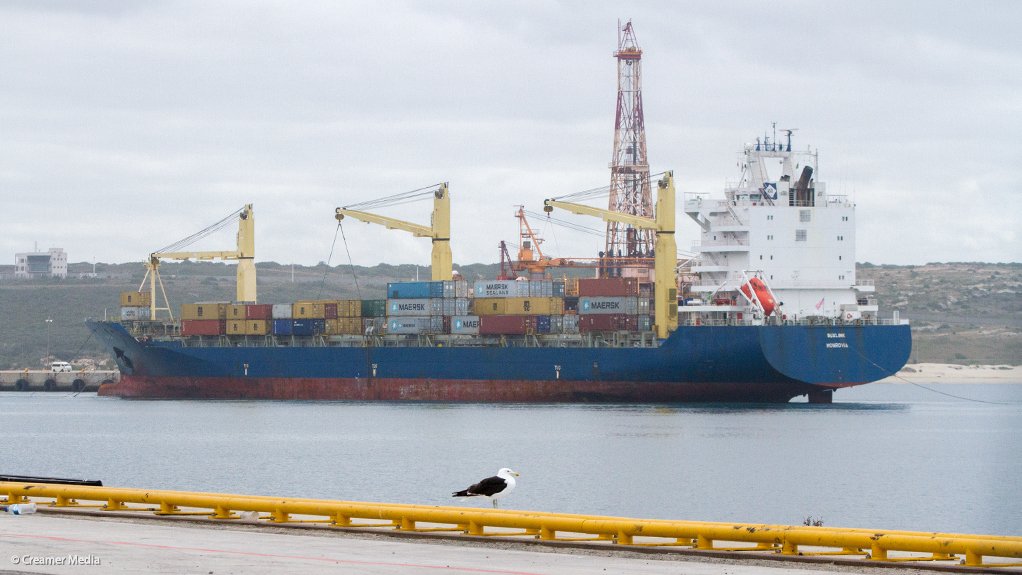Aimed at leveraging South Africa’s strategic location and extensive coastline, Operation Phakisa will place at its centre the accelerated growth of the country’s marine transport and manufacturing (MTM) sector, which government believes can contribute up to R23-billion to the national gross domestic product (GDP) by 2019.
The marine transport sector included cargo handling, national registry and flagging, while marine manufacturing saw the building of maritime vessels, rig and ship repair, as well as offshore oil and gas services.
Following a six-week study, government agency the MTM Laboratory found that the implementation of 18 strategic initiatives to drive the development of the sector could further enhance its contribution to the economy, potentially creating 15 220 direct jobs, 46 000 indirect jobs and R18.8-billion in revenue in the first five years.
To deliver on these initiatives, the MTM Laboratory created a detailed implementation plan, budget requirement, key performance indicators and a proposed governance system that outlined required capital spend by government over the next five years of R14.5-billion and operational spend of some R6.6-billion.
It described, however, “significant” challenges to growth of the MTM industries, including outdated, insufficient and expensive infrastructure, inadequate artisanal and professional skills, limited support for market growth from the public procurement sector and inadequate support for a national ship registry or the flagging of South African ships.
Department of Transport (DoT) maritime policy and legislation acting chief director Mthunzi Madiya told a meeting of the DoT Broad-Based Black Economic Empowerment Charter Council on Wednesday that the 18 identified initiatives were aimed at creating a supportive policy and funding environment that would fast-track priority MTM infrastructure projects.
“These interventions further look to identify and develop the required skills through a robust classroom and workplace-based system as well as encourage the establishment of a South Africa-flagged fleet for coastal and international shipping.
“This will involve the development of a market through minimum local content thresholds for all public procurement as well as the building of a strong private-sector market,” he commented.
Madiya added that the MTM industry currently faced three major constraints when it came to the provision of adequate maritime infrastructure at an affordable cost.
Firstly, the current ship repair facilities were in a state of disrepair, with outdated infrastructure that dated back to the Second World War.
Maintenance and upgrades to this infrastructure had been largely neglected, which compromised efficiency and safety and rendered South Africa able to capture only 5% of the available ship repair market.
High rental and tariff costs and the short tenure of leases for marine manufacturing further inhibited growth in the sector, with overstated asset values creating a risk of pricing the industry out of the market.
“Cape Town is one of the most expensive dry docks in the world, while the cost of port land in Namibia and Mozambique is about a third of the rental costs of [dry docks] at the Port of Durban,” Madiya held.
Moreover, the MTM sector faced regulatory constraints in the form of “onerous” immigration regulations that interpreted oil rigs as refineries, which required crews to be in possession of a visa to disembark or transfer to another destination.
In addition, South African ports were not classified as ports of entry, which complicated the process of doing business with rig, vessel and helicopter operators.
Delays in the amendment of the Customs and Excise Act to allow goods imported or cleared also did not cover the temporary import of ships for refurbishments or the beneficiation of equipment for export.
Identifying initiatives to improve the competitiveness of the sector, the MTM Laboratory argued in favour of the creation of a new funding and revenue model that would help to reduce the costs of infrastructure and fund the refurbishment and improvement of existing operations.
Government was further called to commit to target dates for the implementation of key priority port infrastructure investment projects, such as Saldanha Bay, Richards Bay and East London.
MTM Laboratory also highlighted the need for the accelerated establishment of marine transport and manufacturing occupational teams to deliver occupational-specific curricula as well as the establishment of centres of specialisation to facilitate the implementation of the new curricula, lecturer development and partnerships with industry.
This would also involve the training and preparation of maritime semiskilled persons, artisans, professionals and seafarers to take up the jobs that would become available through the various interventions.
In terms of market growth, the agency argued that government should also implement and ensure compliance with the local content designations for all maritime procurement by government and State-owned companies, based on the DTI designations.
“In addition, the condition of licensing for fishing or for oil and gas exploration must include the local content and shipping requirements to support the creation of a national registry.
“[Government should further] implement developmental funding and special incentives to promote industry growth as well as develop a strategic campaign to market South Africa as an integrated maritime hub regionally and globally,” Madiya concluded.
EMAIL THIS ARTICLE SAVE THIS ARTICLE
To subscribe email subscriptions@creamermedia.co.za or click here
To advertise email advertising@creamermedia.co.za or click here











